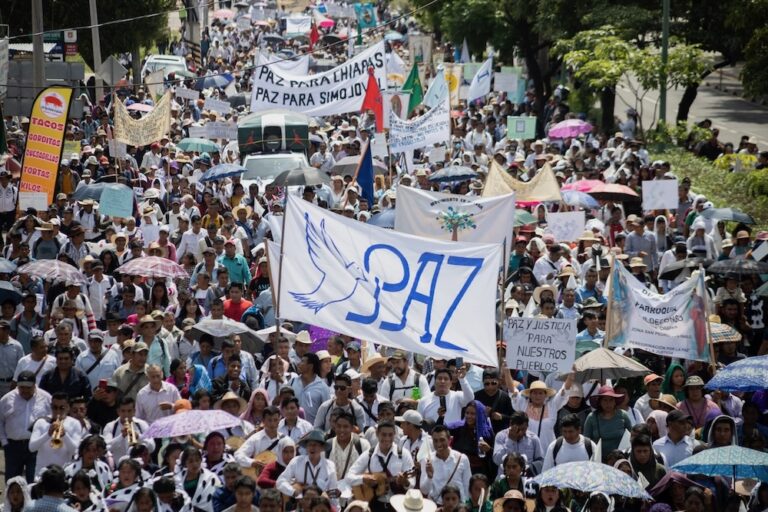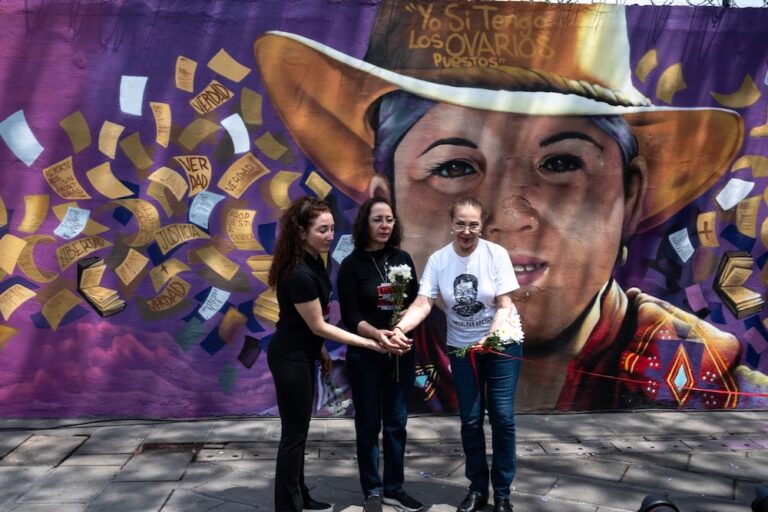The proposed amendment would allow for prison terms of up to 12 years for individuals who install, operate, collaborate with or sell equipment to unauthorised television or radio stations.
(AMARC/IFEX) – 7 December 2009 – The following is an abbreviated version of a statement released by seven non-government organisations, condemning a proposal to amend the Federal Radio and Television Law that would allow for up to 12 years’ imprisonment for individuals who install, operate, collaborate with or sell equipment to unauthorised television or radio stations:
According to information published in the 3 December 2009 Chamber of Deputies’ Parliamentary Gazette, Deputy Andrés Massieu Fernández, of the Revolutionary Institutional Party (Partido Revolucionario Institucional, PRI), has presented a proposal to apply criminal law statutes in order to imprison individuals who operate unlicenced radio and television stations.
In Mexico, many radio and television stations are operating without licences, especially in indigenous and subsistence farming communities, due to the fact that the current law allows for a high level of discrimination in the granting of these licences, making it nearly impossible for many stations to fulfil the required prerequisites. Many communities have submitted requests for licencing but have received no response from the authorities due to a lack of political will and an absence of clear criteria and regulations. The Mexican National Human Rights Commission has called for this situation to be rectified, while the Inter-American Commission on Human Rights’ Office of the Special Rapporteur on Freedom of Expression has noted that radio and television frequencies should be allocated taking into consideration democratic criteria and equal opportunity of access to these media for all individuals.
Many municipal mayors are also operating unlicenced radio stations. As such, the amendment to the law in question would result in the imprisonment of many of the PRI’s own members.
The amendment would apply to anyone who installs, operates, collaborates with or sells equipment to unauthorised broadcasters and, as such, would result in the detention of hundreds of indigenous people and individuals living in poverty simply for exercising their right to freedom of expression.
With the presentation of this proposed amendment, Deputy Massieu Fernández, as a former employee of a commercial electronic media outlet, has demonstrated views that are contrary to a democratic society and a lack of understanding of human rights.
Signatories:
World Association of Community Radio Broadcasters (AMARC-Mexico)
ARTICLE 19
Asociación para el desarrollo integral de personas violadas, A.C. (ADIVAC)
Centro de Derechos Humanos Fray Francisco de Vitoria, O.P.
Centro Nacional de Comunicación Social, A.C. (CENCOS)
Fundar, Centro de Análisis e Investigación
Red Nacional de Organismos Civiles “Todos los derechos para todos y todas”


